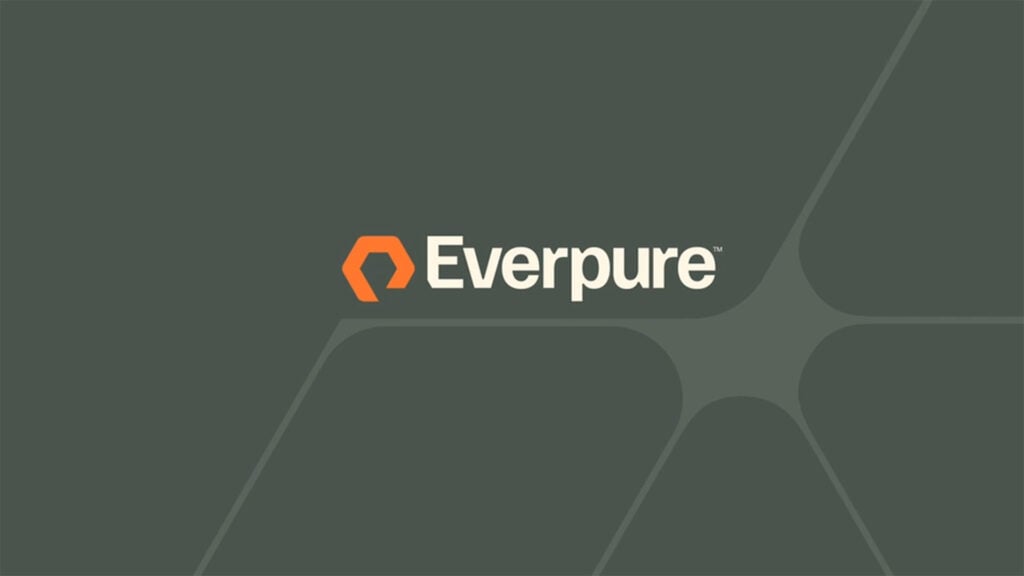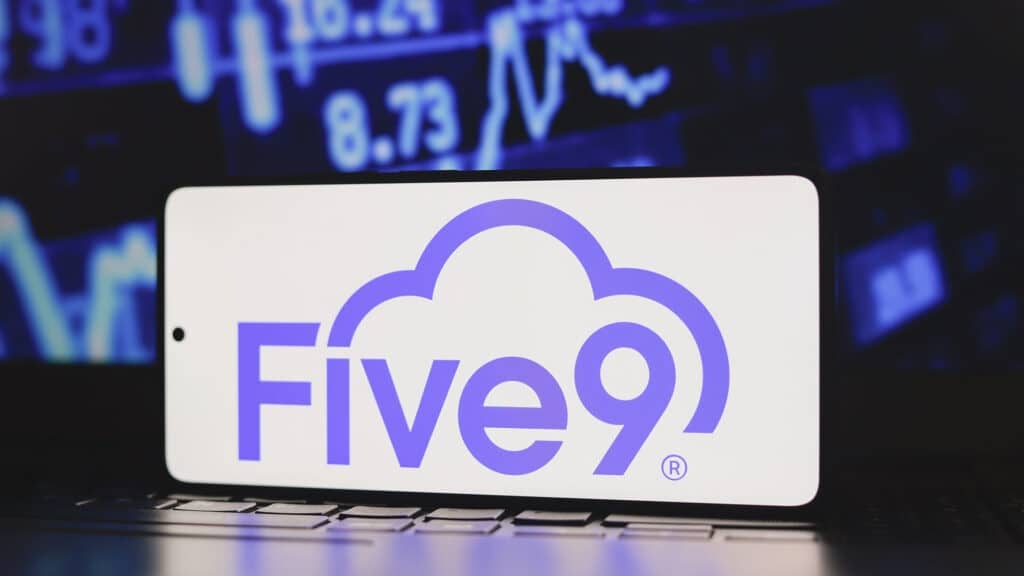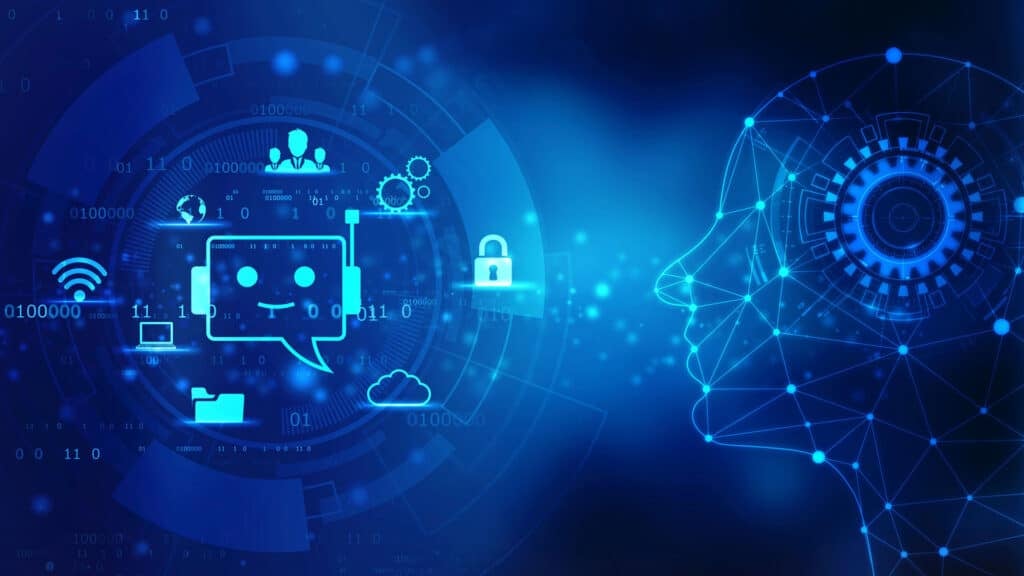At Dell Tech World 2025, hosts Patrick Moorhead and Daniel Newman are joined by Erik Day, SVP, SMB GTM Strategy & Transformation and Jillian Mansolf, SVP & GM, North America Medium Business Sales from Dell Technologies. Tune in to their discussion on how Dell Technologies is democratizing AI modernization for small and mid-sized businesses (SMBs), challenging the notion that AI and modernization are only attainable for large enterprises. ⚡
Key Takeaways include:
🔹Modernization for Growth: Dell Technologies is guiding SMBs to scale smarter and innovate faster through strategic AI adoption, emphasizing that modernization is crucial for sustained growth in today’s competitive landscape.
🔹Personalized AI Roadmaps: Dell offers a differentiated approach, providing SMBs with tailored AI roadmaps that align with their specific business goals, ensuring efficient scaling and impactful technology integration.
🔹Real-World Success Stories: The guests highlight tangible customer transformations, such as Star Kay White’s journey, illustrating how Dell’s consultative approach and technology solutions deliver practical outcomes for SMBs.
🔹Dell’s AI Factory for All: Dell Technologies’ comprehensive AI Factory provides end-to-end solutions, enabling SMBs and medium businesses to confidently and seamlessly integrate AI into their operations, making advanced AI attainable for a broader market.
Learn more at Dell Technologies.
Watch the full video at Six Five Media, and be sure to subscribe to our YouTube channel, so you never miss an episode.
Or listen to the audio here:
Disclaimer: Six Five On The Road is for information and entertainment purposes only. Over the course of this webcast, we may talk about companies that are publicly traded, and we may even reference that fact and their equity share price, but please do not take anything that we say as a recommendation about what you should do with your investment dollars. We are not investment advisors, and we ask that you do not treat us as such.
Transcript:
Patrick Moorhead: The Six Five is On The Road here in Las Vegas, Nevada. We are at Dell Technologies World 2025. It is AI nonstop from morning to night here. Talking a lot so far about the data center, client, the industrial edge. Daniel?
Daniel Newman: Yeah, we’ve covered a lot of ground in a short period of time. We’ve heard, you know, across the portfolio, you know, of course you’ve got devices, a lot of innovation happening there really, really quickly. The data center is probably even faster. It feels like warp speed going on there. You know, we’re trying to have more token output, less energy. Dell’s trying to build factories and on top of that we’re putting the services together because right now we know the two big opportunities in this space, selling the infrastructure, the consulting and services to help implement and employ value out of these things. Pat and we’re getting a little bit of all of that today.
Patrick Moorhead: Yeah. The irony though of it is that if you add up all the economic opportunity really on a planet scale and you, you look at large enterprises and then add it to small and medium business. Small and medium businesses are actually larger than large enterprises. I’m going to put the government on the side for a second and just don’t get enough conversation. But we have Erik and Jillian from Dell Tech to talk about this.
Erik Day: We also agree that they don’t get enough attention.
Patrick Moorhead: There we go. That’s it. I put the golf ball on the tee.
Jillian Mansolf: We agree every big business was a small business.
Erik Day: That’s right.
Patrick Moorhead: That’s right. Welcome to The Six Five for the first time. I can’t believe The Six Five is six years in. We never had you on the show, but we’re glad to have you.
Erik Day: Well, we’re glad to be here.
Jillian Mansolf: Yeah.
Daniel Newman: The first but not the last, Patrick.
Patrick Moorhead: I hope so.
Daniel Newman: Yeah, let’s do this. So let’s start there though. You know, we do, we hear so much about hyperscalers. We hear so much about, you know, largest enterprises. You guys had a couple of great large enterprises on stage this morning with Michael. Right. Lowe’s, JP Morgan. We hear a lot about consumers using AI, mostly from those large hyperscalers. But Erik, what we’re not hearing about a whole lot is smaller companies. What is kind of going on there? What’s up with the perception? Is it financially untenable, unobtainable? Is it unobtainium for smaller companies? What’s your perspective on how modernization can work for smaller mid sized companies and how are you helping bring that to life?
Erik Day: I mean, we have to be honest. It doesn’t matter if you’re a small business or a large enterprise, everyone has got to modernize. Everyone’s looking to be more efficient, everybody is looking for their employee base to be more productive. That doesn’t change. That is a very similar story as you work across all these businesses. Now do small and medium businesses have the resources to go all in with AI right now? Probably not. They don’t have the same resources as a large enterprise or a hyperscaler does. But there’s still a lot of interest there. There’s still a lot of ways that I think small and medium businesses and small and medium enterprises can actually get a lot more efficient and more productive. And so I think it’s a bit of a toe in, like a first toe into the water type approach that they’re taking. They’re looking at a lot of these kinds of public options, whether it’s the ChatGPT’s of the world, the Co-pilots of the world, they’re trying to get started with AI PCs. We’ve got one of the highest shares in AI PCs, especially in the SMB space for at least them to actually get their employees using it. Because before we even talked about selling a single AI server, we had many of our employees using these open, available chat functions that allowed them to actually do their work a lot quicker. And sure enough, the more time that you’re not doing some erroneous tasks, the more times you’re with customers.
Jillian Mansolf: Yeah, I mean I think small, medium businesses, they need to scale faster and innovate quickly. I think AI gives them an advantage. But it is about data sets, right? You’ve got to find the data, you’ve got to scrub it, you’ve got to connect it, you have to secure it. So the bigger the data set, the easier they have the ability to kind of implement AI. But I think with Agentic AI in particular, you think about companies being able to scale and support customers without having to manage employees, which is a hard thing to do. Finding employees, training employees, keeping employees, retaining them. That changes a lot for the landscape of a small business, which I think is exciting for most of our customers.
Patrick Moorhead: Yeah, so we talked a little bit beforehand and you had said, of course, I mean every large business was a small business before and you know, it’s funny, it still comes across as wow, that’s a big idea. But it’s true. What I’m curious though is how do you map the journey of a customer that starts smaller and then with the goal of being bigger? You’d like to think that they don’t have to throw away their investment. You’d like to think they could leverage their investment, but it’s not all the same. The larger you get, things do change. Complexity typically does go up. Cost maybe not cost per serving or cost per employee goes up. But the challenge grows.
Jillian Mansolf: Yeah, I mean in our business we’ve got a little over just under right around a million accounts. So that’s a big ecosystem, people to be dealing with. And we have, I think, a really great way to take a customer from a small business acquisition, buying from us for the first time all the way through to enterprise. And we work very closely with our business partners. I think we know it when we see it, but customers are scaling quickly. It gets complex quickly. You can plug in partners. But what they need from a service and support standpoint starts out scaling the resources that we have in our small and medium business segments. So we do a lot of transactional, lots of volume. But when things start getting to be really complicated, maybe not so much on client, but server storage, networking, hyperconverge, that’s when we bring in partners. And when they start needing resources in Sidel, like full dedicated teams, that’s when we start plugging them into different parts of our business, moving them through the stack. You know, in Dell it’s small business, medium business, Enterprise, Large Enterprise, DellTech, Dell Tech Select. That’s kind of the full stack outside of the Fed.
Patrick Moorhead: Yeah. So a journey for everybody on the container.
Erik Day: And I think the other important thing to think about here is that, you know, there was a time in our journey where even in small business we were, you know, we talked to anybody. We’d talk to our barbershop, we talked to a dry cleaner, we would talk to anybody that would want to talk to us because we wanted to just get as much of our technology out there as possible. But as we’ve ultimately evolved as well, and we’ve actually put this kind of digital first mentality to it, we’ve realized that, you know, our website can serve as a great platform, great digital platform for some of those smaller companies. And where Jillian and I really focus on is those tech forward companies. Right. We are doing a lot of data science, a lot of both internal and external data management around who these customers are so that we can actually have some of those conversations with them first. Right. We want to have the AIPC conversation with them, but we also want to have a data management conversation with these.
Jillian Mansolf: Sure.
Patrick Moorhead: Oh, interesting. With, with a small business or medium business or both?
Erik Day: Well, I mean, in 2025, what we’ve noticed is that it’s not the same as people think about it anymore. You can have a 50 person engineering firm that’s buying $6 million worth of technology that would be considered 10 years ago a small business.
Patrick Moorhead: Right.
Erik Day: Right now, Jillian and I would get together and be like, hey, this customer probably needs a little bit more ecosystem around support and specialty and things like that. We’ll sometimes make the call to send that up to the enterprise.
Patrick Moorhead: Yes, right.
Erik Day: Our job is to actually have those initial conversations, find out how they’re thinking about data management, thinking about their cloud strategy. Are they kind of in a position where they’re trying to repatriate and also bring some workloads down from the private cloud onto the public cloud. We can actually get them through some of those initial steps. We can even get them into their first kind of AI thinking models as well. If they’re thinking about trying to bring some GPUs into the business to try to actually run some of their own LLMs or some of their own automation. And then once we ultimately think that they’ve scaled past what we ultimately can do, we’ve got an amazing enterprise team that will take those customers from us.
Jillian Mansolf: And drive it and partner community. I mean, I think the thing I’m the most proud about in our small medium business segment is I do think Dell’s unique. We have salespeople that are connecting with those customers directly. We’re not just relying solely on a partner channel. We love our partners. But every one of these customers that Erik and I manage has a dedicated sales team. So we’re talking to them, we understand their business, we’re working with them to understand, hey, where are you coming from? Where are you today? Where are you going? And we have the ability to kind of match their vision of where they see their business going with the resources that we know that we have at our disposal inside our business. I mean we are a world of experts inside our company, which I think is super exciting for a medium business because you can tap into engineering at any level. It can be client, it can be networking, it can be storage, it can be server, it could be AI, it could be GPU workloads. Like we’ve got a specialty that we can bring in from an expertise standpoint all the way down to the small business. I think that does make us unique. Like what other OEM or manufacturer is bringing a sales team all the way down to a 20 person customer?
Patrick Moorhead: I mean, listen, Dell started with the direct model, you realized probably years in that you did need help with the channel. That wasn’t always the case. But bringing the channel in, bringing partners in at the right time, doesn’t mean just giving everything and the keys to everything. I think keeping that direct relationship is a strategic advantage that Dell does have.
Erik Day: Well, I mean, with that said, I mean, Jillian and I have the largest direct SMB salesforce in the country. Bigger than any of our competitors, bigger than any channel partner. But what makes us truly special is that I think when we say direct, we don’t mean that we necessarily have to sell it direct, but we want to have that direct relationship with the customer. We want to be on the front line having that data management conversation, that AI conversation, that PC refresh conversation with that customer. And then we ultimately have the ability to figure out who’s the right partner. Do we bring a distributor partner, and can they service them better? Can they have a better deployment? A lot of our small and medium businesses don’t even have the space to sometimes take in all of the inventory they need. So we need our partner community to help, you know, space out deliveries. We need to make sure that they have a more sizable or better ability to deploy those products than we do. And the financing, not only that Dell can do with our customers to help them with the financial aspect, but what the channel partners can help us do as well is a huge burden off their back when they think about whether they want to, you know, a consumption model, do they want to actually purchase outright? They’re really helpful with us in that aspect too.
Daniel Newman: So Jillian, because I’m hearing a lot of interesting inflections about companies growing small companies becoming big consumers of meaningful infrastructure. And I’ll be candid, even as an analyst, a lot of times when I think about where those smaller companies and mid sized companies are going to turn, it’s often been cloud and SaaS, swipe a credit card, get started, very little infrastructure requirement. What I’m hearing from you is that’s not entirely the case. And in fact you’re building a very robust business. So as you go from kind of, you handle small and medium, your remit is specifically focused on medium. As companies kind of go from being the smaller, they grow up, they become medium companies, they start consuming technology a little differently, AI is changing that trend line again. And what is Dell, what role does Dell play in sort of guiding that along and what are some of the key tenets to winning the trust? Because right now what I do feel like is whether it’s you it’s any of the ISVs, whether it’s the cloud, everyone kind of wants to be that trusted partner. So what’s the secret sauce for Dell to be the trusted partner for these companies that are growing up from small into your world?
Jillian Mansolf: I think we’re really lucky because our portfolio is so broad. So we’re not necessarily pushing somebody into one solution. There really can be many different solutions. I think in small business you’re right. You’re going to swipe a credit card. It’s easy. You don’t have an IT team. They start a lot in the cloud. By the time they start growing up a little bit, they start realizing they’ve got a lot of data that maybe doesn’t need to be there. Potentially if they start thinking about what is your tiering, what’s expensive, what do you want to have on prem? We spend a lot of time with medium business customers in particular trying to help them figure out what they really want to have on site, especially with AI. Right. You need to be able to get the data, we need to house it, you need to clean it, you need to connect it, you need to protect it. That’s going to be done at their location. It’s not going to be done in the cloud. It gets pretty expensive, especially for the ones that are fast growing to have that data set continuing to expand into the cloud, especially when it’s stuff that they are needing on a daily basis to use.
Patrick Moorhead: By the way, it’s been a great conversation. We have two minutes left.
Jillian Mansolf: Okay.
Patrick Moorhead: What I want to do is have a little bit of a speed round on. You have to name your favorite AI product or solution, a new one that gets you most excited in your area. I know you love all your children the same, but you have to prioritize. How about the top three? We’ll go start with you, Erik.
Erik Day: Well, funny enough, we have an amazing innovation hive. It is our first time that we’ve actually had a dedicated space for SMB at Dell Technologies World. And believe it or not, we have a customer out of our Australian business that is actually using AI to develop like the F1 of flying cars. And so they are ultimately using actual data on the edge to actually figure out how to fly these cars. They’re going to start working with F1 tracks to actually get these flying cars to be able to race. They believe that racing is actually the first way to actually get the new change in kind of vehicle strategy differently. Because if you think about the past, Ford actually raced cars before he sold them. This company really believes that AI and being able to use simulation data, usage data, gaming data, media data, they can actually get one of the best, fastest growing sports out in the market today using flying cars. So that would be kind of my new favorite use case right now.
Daniel Newman: So Jillian, 30 seconds.
Jillian Mansolf: Favorite use case.
Patrick Moorhead: Favorite product.
Jillian Mansolf: I’ll say use case. I mean the thing I love about medium businesses, you don’t think about some of the businesses that are businesses. So today I interviewed Star Kay White. They are an ice cream flavor manufacturer, tons of video surveillance on their site, on their floor, 120 people buying tons of storage and capacity because they need to be able to store a ton of FDA data. I think Erik and I are so lucky because we’re kind of at the forefront with a lot of these customers as they’re building their businesses. I can’t speak to tools. I’m not really in the, I’m not really doing a lot of tool stuff. But I would just say that from a use case standpoint, I think every day I get surprised how our customers are thinking about growing, innovating and using AI as part of their kind of journey as they move forward from modernization.
Daniel Newman: So flying F1 cars, tasty treats. We help businesses big and small.
Erik Day: AI for everyone.
Daniel Newman: Solve their AI challenges. Erik, Jillian, thank you so much for joining The Six Five here at DTW 2025. Thank you so much and thank you everybody for being with us Six Five On The Road at Dell Technologies World 2025. We’re going to take a little break. We’ll be back with you all shortly.
Author Information
Daniel is the CEO of The Futurum Group. Living his life at the intersection of people and technology, Daniel works with the world’s largest technology brands exploring Digital Transformation and how it is influencing the enterprise.
From the leading edge of AI to global technology policy, Daniel makes the connections between business, people and tech that are required for companies to benefit most from their technology investments. Daniel is a top 5 globally ranked industry analyst and his ideas are regularly cited or shared in television appearances by CNBC, Bloomberg, Wall Street Journal and hundreds of other sites around the world.
A 7x Best-Selling Author including his most recent book “Human/Machine.” Daniel is also a Forbes and MarketWatch (Dow Jones) contributor.
An MBA and Former Graduate Adjunct Faculty, Daniel is an Austin Texas transplant after 40 years in Chicago. His speaking takes him around the world each year as he shares his vision of the role technology will play in our future.












